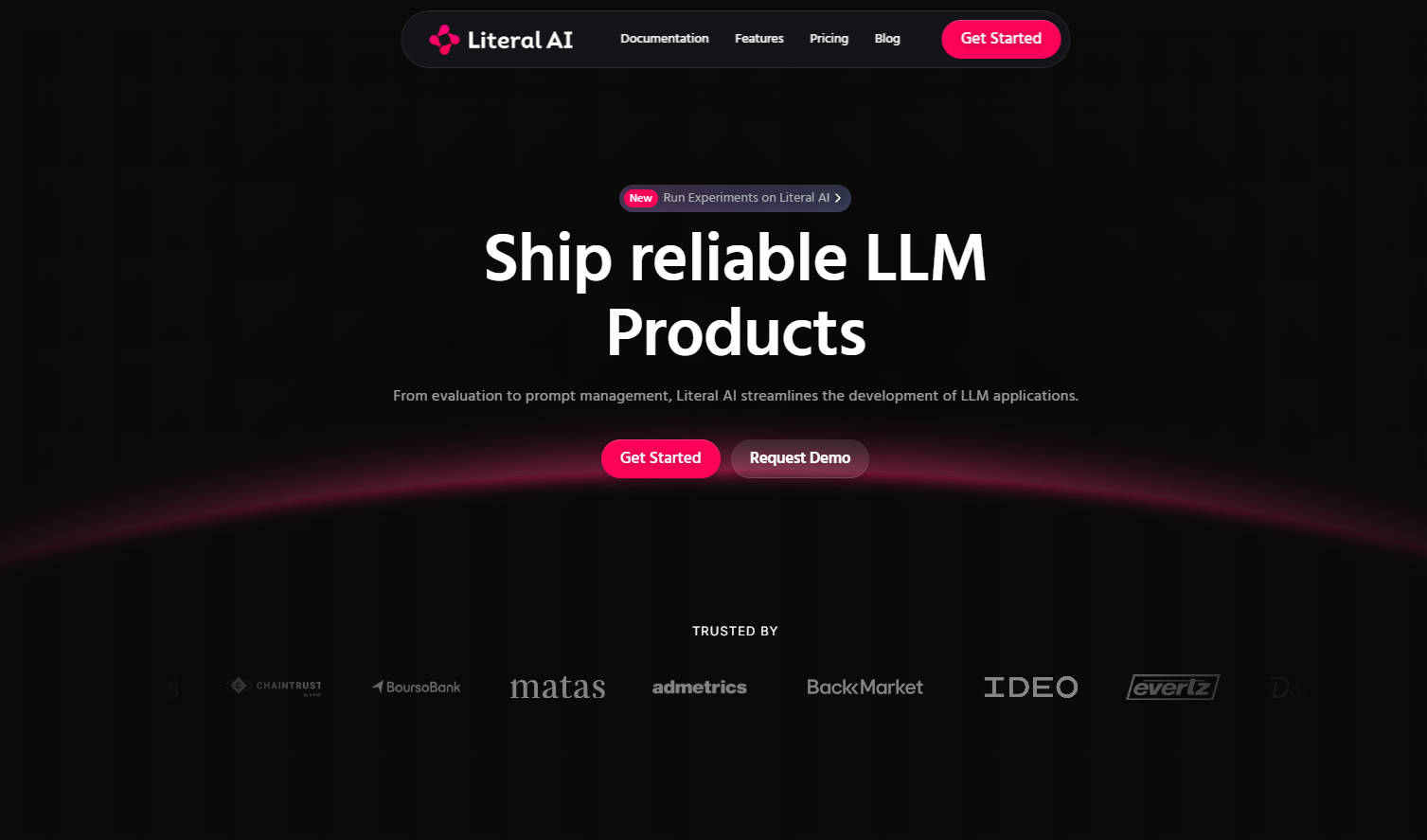
What is Literal AI?
Developing production-grade AI applications with Retrieval-Augmented Generation (RAG) and Large Language Models (LLMs) introduces unique challenges. Transitioning from Proofs of Concept (PoCs) to scalable solutions demands robust tools for evaluation, monitoring, and iterative enhancement. Literal AI addresses these needs by offering a collaborative platform that streamlines the entire development lifecycle of LLM applications.
Key Features:
Comprehensive Logging & Tracing: 🔎 Achieve deep insights into your application's behavior by logging LLM calls, agent executions, and full conversations. Utilize this data for debugging, performance monitoring, and constructing datasets from real-world interactions.
Advanced Prompt Refinement: 🧪 Enhance your prompts using Literal AI's sophisticated playground. Features such as templating, tool calling, structured output, and custom model support enable effective prompt creation and debugging.
Production Performance Monitoring: 📊 Monitor essential metrics like volume, cost, and latency through a centralized dashboard. Identify and address failure cases in production by evaluating LLM calls and agent runs, enabling proactive system improvements based on real-world usage.
Unified Data Management: 🗄️ Organize all your data in a single location. Prevent data drift by utilizing both staging and production logs, ensuring your models stay accurate and relevant.
Controlled Experimentation: 🔬 Efficiently iterate by conducting experiments against datasets, either within Literal AI or directly from your code. This method helps avoid regressions while fostering continuous improvement.
Application Performance Evaluation: ✅ Enable continuous deployment for LLM-based applications with robust evaluation capabilities. Score individual generations, agent runs, or entire conversation threads, either via the platform or directly from your code.
Collaborative Prompt Management: 🤝 Collaborate on versioning, deploying, and A/B testing prompts. This approach ensures team alignment and contributes to optimal prompt performance.
Integration of Human Feedback: 🧑💻 Utilize user feedback and subject matter expert (SME) insights to annotate data and enhance datasets over time, leading to more accurate and reliable models.
Use Cases:
Debugging Chatbot Misunderstandings: A developer identifies a chatbot consistently misinterpreting a specific user query. Using Literal AI's logging feature, they trace the conversation, pinpoint the problematic LLM call, and identify the flawed prompt logic. They then refine the prompt in the Playground and test the fix before deployment.
Cost Optimization for Agent Performance: A product owner observes high costs linked to a particular agent-based application. By analyzing the Monitoring dashboard, they identify the most expensive LLM calls. They then use Literal AI's Experiment feature to test alternative, more cost-effective models or prompting strategies without affecting the production environment.
Enhancing RAG System Accuracy: An AI engineer aims to improve the accuracy of a RAG system handling customer support queries. Using Literal AI's Evaluation feature, they create a dataset of real-world user queries and expected answers. They then run experiments to compare different retrieval strategies and LLM configurations, identifying the combination that delivers the highest accuracy.
Conclusion:
Literal AI equips developers and product owners to build, deploy, and maintain reliable, high-performing LLM applications. By offering comprehensive observability, evaluation, and collaboration tools, Literal AI simplifies the intricate process of developing production-grade AI, enabling you to deploy with confidence.
FAQ:
Q: How does Literal AI integrate with my existing workflow?
A: Literal AI provides a Python SDK, TypeScript SDK, and GraphQL API for seamless integration with your application code. It also supports auto-deployments on Azure, GCP, and AWS, and is self-hostable for enhanced data privacy.
Q: What types of LLM applications is Literal AI suitable for?
A: Literal AI is designed for a broad range of LLM-based applications, including agentic applications, RAG systems, chatbots, and task automation solutions. It is particularly useful in scenarios requiring observability, evaluation, and analytics for LLM applications.
Q: Who is behind Literal AI?
A: Literal AI is developed by the creators of Chainlit, a widely-used open-source Python framework for building conversational AI applications, trusted by over 80,000 developers.
Q: What are the pricing plans? A: Literal AI offers Basic (Free), Pro, and Enterprise plans. The Basic plan includes limited usage (10,000 Log Units/month, 30 days data retention, up to 3 team members). The Pro plan is ideal for production-grade applications, while the Enterprise plan provides custom features and is designed for the highest data privacy requirements.






